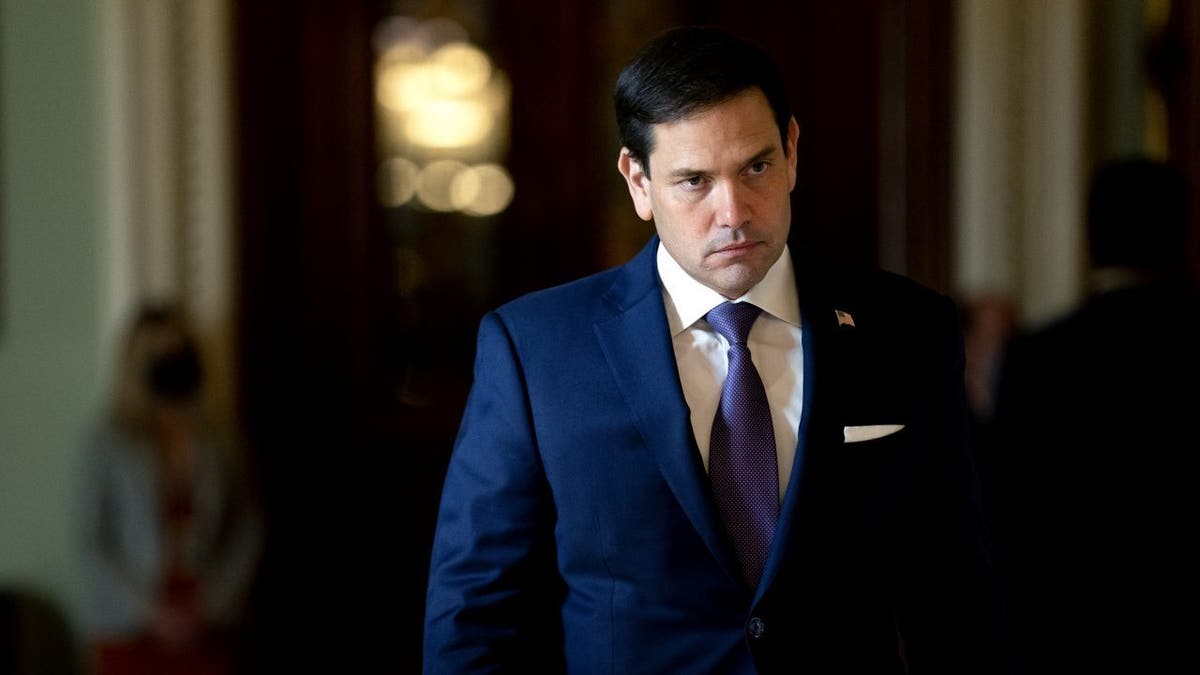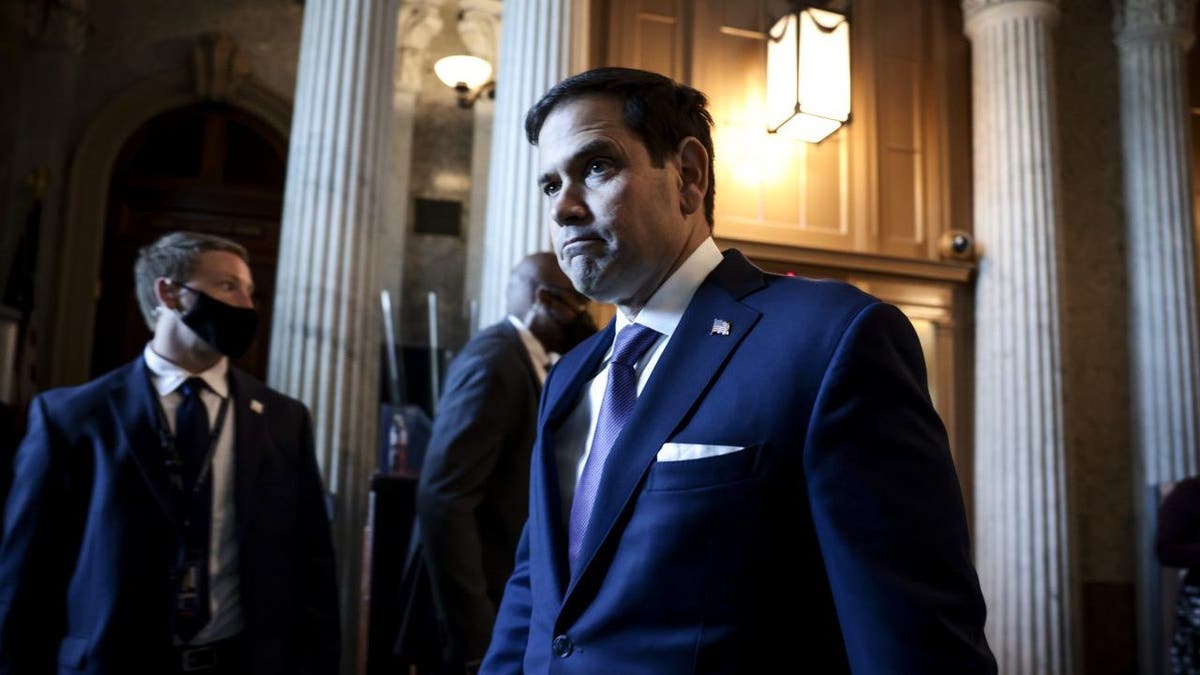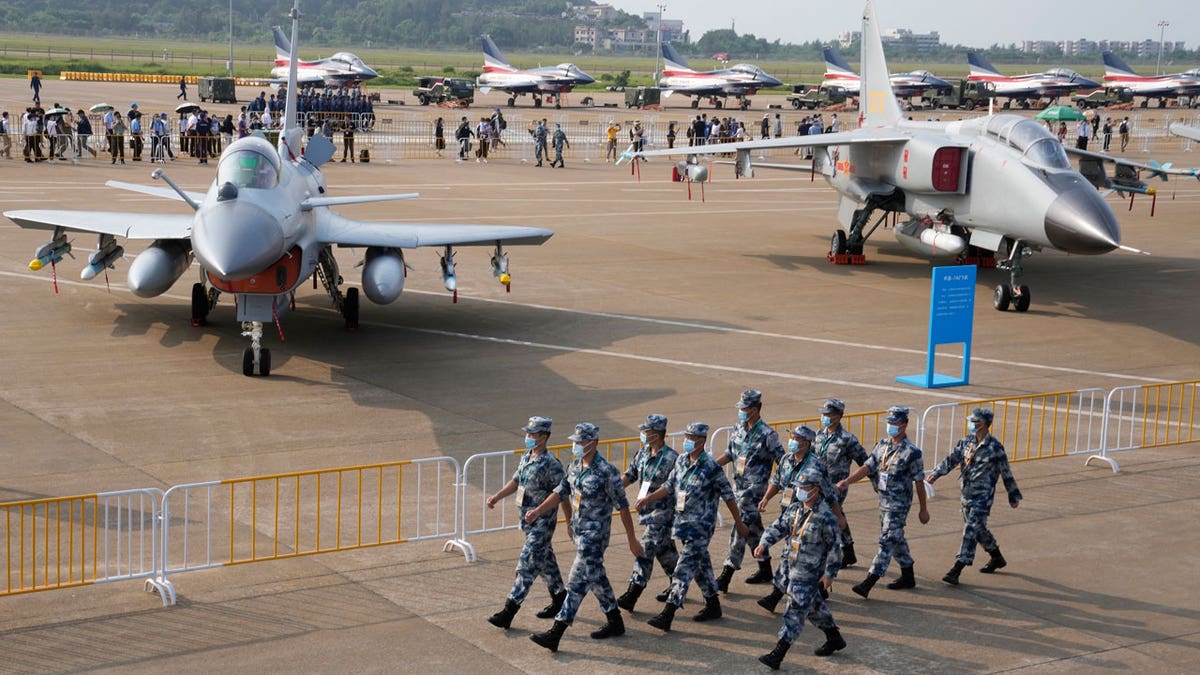Fox News Flash top headlines for December 8
Fox News Flash top headlines are here. Check out what's clicking on Foxnews.com.
The threat of a U.S.-China war over Taiwan has become a topic of increasing concern in Washington. According to Sen. Marco Rubio, R-Fla., war with China is only a matter of strategic financial deterrence.
"China knows that any sort of military intervention in Taiwan would be very costly," he said Wednesday in an interview with Fox News. "The reason why they haven’t done it already, years ago, is because they believe that the costs of military intervention in Taiwan were heavier than the benefits of doing it."
CHINA COULD WIN 'TRUMP CARD' OVER GLOBAL ECONOMY BY TAKING OVER TAIWAN SEMICONDUCTOR MANUFACTURING

Senator Marco Rubio walks to a Senate Republican caucus meeting at the U.S. Capitol in Washington, D.C. (Stefani Reynolds/Bloomberg via Getty Images)
"We have to ensure that that equation remains that way," he added. "The day the benefit of going into Taiwan outweighs the cost – the risk of them doing it is very high."
The Chinese Communist Party (CCP) has made clear it intends to seek "complete reunification" of Taiwan with mainland China.
Beijing’s relationship with Taipei has been strained since the Republic of China relocated to the western Pacific island in 1949 amid conflict with the CCP.
While Taiwan identifies as a sovereign nation, the CCP, the United Nations and the U.S. recognize Taiwan as a part of China under the "one-China" policy.
The U.S. however remains committed to ensuring Taipei’s ability to function free from Chinese government control.
LLOYD AUSTIN SAYS INCREASED CHINA ACTIVITY NEAR TAIWAN 'LOOKS LIKE REHEARSAL'

Sen. Marco Rubio, R-Fla., arrives to a luncheon with Senate Republicans at the U.S. Capitol Building. (Anna Moneymaker/Getty Images)
Chinese control over Taiwan could mean that not only the U.S., but the global economy, may face increased supply chain challenges – an issue that is already plaguing the automotive and tech industries.
The vast majority of semiconductors, which are needed to fuel the increasing demand for electronics worldwide, are produced in Taiwan.
But Rubio argued that apart from stopping a Chinese monopoly over the vital supply of semiconductors, the U.S. cannot lose face when it comes to protecting another ally.

Chinese Air Force personnel march past the Chinese military's J10C fighter and JH-7A2 fighter bomber. With record numbers of military flights near Taiwan over the last week, China has been stepping up its harassment of the island it claims as its own, showing an new intensity and sophistication as it asserts its territorial claims in the region. (AP Photo/Ng Han Guan)
"If Taiwan would ever be taken by force…and the U.S. is incapable or unwilling to do anything about it – that is the end," Rubio said. "Not just of the strength of our alliances and our assurances to the different allies in the Asia Pacific region, but it’s the end of them all over the world."
Rubio, who sits on the Senate Foreign Relations Committee, said China is looking to deter U.S. intervention in Taiwan by building out their missile defenses that are not only capable of causing substantial causalities, but of sinking expensive aircraft carriers.
CLICK HERE FOR THE FOX NEWS APP
"You’ve got to be able to defeat the weapons they’re developing," he told Fox News. "What they are trying to do is develop weapons that basically forces [the U.S.] to not send aircraft carriers and naval vessels into the vicinity.
"And if we don’t have the technology to defeat the things that they are developing – we won’t be able to do that and they know that," he added.













































